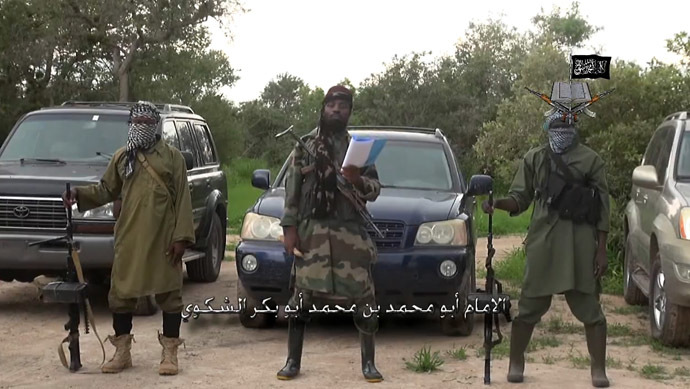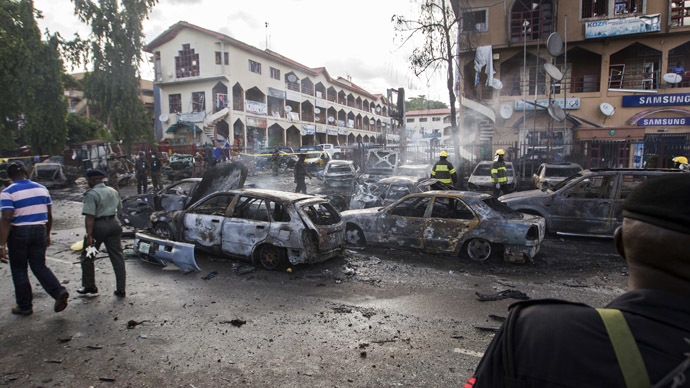Are African lives worth less than the lives of people elsewhere in the world?
Last week 17 people were killed by terrorists in France. The events were shocking and quite rightly the murders were subject to unequivocal condemnation. At the same time, considerably more people were reported to have been killed by gunmen in Baga, Nigeria, with figures ranging from 150 to over 2,000. But it’s the French victims who we focus on, showing our solidarity with them by declaring ‘Je suis Charlie’, and holding vigils in Trafalgar Square and elsewhere- while the African victims of violence have – certainly until the last day or so - been ignored. Even Nigeria‘s own President was keener to condemn the Paris attacks than those in his own country. How can this be right? Surely we should be mourning all victims equally?
For a brief period it was fashionable to show concern for the victims of political extremism in Africa. Remember the ‘BringBackOurGirls’ hash tag when the militant Islamist organization Boko Haram kidnapped schoolgirls in Chibok in Nigeria in 2014? The interest however soon died away.
As the media spotlight was shone elsewhere, Boko Haram continued to make major territorial gains killing thousands in the process. Today, as reported by RT, the group now controls an area of 52,000 square kilometers, the size of Slovakia.
But while Islamic State and their territorial advances became front page news in 2014, the gains made by Boko Haram have, like the group’s victims, been ignored. Instead the focus is on the very small ‘threat’ terrorists pose to Europe, a threat which as I explained here our governments are doing their best to ‘big up’.

You’ve probably got more chance of being killed by a lightning strike than by terrorists in Europe but the odds are greater in Africa.
It’s certainly more dangerous going to church there than it is in Europe.
Dozens of churches were attacked in Kenya and Tanzania in a wave of bombings in 2013. Two worshippers were killed and thirty injured in a bomb attack at the Roman Catholic Church in Arusha, Tanzania in May 2013. Imagine what a major story it would have been had it happened in Europe, but it was in East Africa, so you probably didn’t read about it.
Cameroon is another African country which has more grounds to worry about terrorism than France. Only this week, there’s been a fierce battle between government forces and Boko Haram militants in the north of the country. “You will taste what has befallen Nigeria, Your troops cannot do anything to us,” Boko Haram’s leader Abubakar Shekau declared on video.
In Uganda too, the terrorist threat is very real. In 2010 militants from the Somali-based al-Qaeda affiliate group al-Shabaab killed over 70 people in bomb attacks on venues which were showing the football World Cup final. In September 2013 the same group killed at least 67 people in a shopping mall in the Kenyan capital, Nairobi.
It’s clear than in many African countries, ordinary civilians have more reasons to worry about being murdered by al-Qaeda type groups than we do in Europe. So why is there the excessive focus on the threat to ‘the West’?
It’s partly about furthering the interests of our political elites. As I explained here, the so-called “war on terror” is being used by our governments as a pretext to restrict our age-old civil liberties and gain more control over our lives. They also want to ‘big up’ the terrorist threat at home to justify their interventionist foreign policies and their continued military presence in the oil-rich Middle East.
Acknowledging that Africans, and indeed Russians too face bigger risks than we do also wouldn’t fit in with the dominant neoconservative narrative of a “clash of civilizations” between radical Islamists, and “the civilized West,” with the latter of course including Israel, the state in the front line of the battle. We in the West must be seen to be the prime targets of the terrorists, even though we’ve been backing the same people in Syria and turned a blind eye when they murdered civilians there. It’s our values and our way of life which is being threatened and no one else’s.
You could argue too that racism also comes into it. Compare the relative lack of interest in the victims of terror attacks in Africa with the enormous interest there was in the events in Zimbabwe in the early noughties. The land redistribution program of the government was in some cases, accompanied by violence. There were calls in the West for military intervention to topple President Robert Mugabe for his government’s treatment of the white farmers and for its persecution of the opposition. Tony Blair, the great ‘regime-changer’ pronounced “there can be no question of Mugabe being allowed to stay in power” unless forthcoming elections were held to be free or fair. But the level of violence that was taking place at the time was exaggerated, as Seumas Milne highlighted in a 2002 essay. “In a BBC Television interview on Sunday with Foreign Office Minister Baroness Amos, David Frost talked blithely of ’100,000 people killed by Mugabe supporters over the last two years.’ In fact human rights groups estimate the total number killed on both sides during that period at around 160.”
That was still 160 deaths too many, but what happened in Zimbabwe twelve or thirteen years ago, pales in comparison with the far greater crimes which have occurred in countries such as Nigeria, and which have got far less coverage.
There’s also the fact that drawing too much attention to the advance of al-Qaeda affiliates in Africa would make people ask how these groups have become so powerful. That’s a complex question for which there is no one simple answer. While US forces have been assisting certain countries in Africa in their battles against terrorists, there’s no doubt too that Western policy has contributed significantly to the current problems, especially when one bears in mind that it was the NATO powers which toppled the Libyan government of Muammar Gaddafi, the main bulwark against al-Qaeda in Northern Africa. Libya, like Syria, saw the West line up on the same side as al-Qaeda.
The neoliberal economic policies that many governments on the continent, including Nigeria’s, have pursued at the behest of Western financial institutions has also had a disastrous effect as it has increased economic hardship and pushed more young people towards extremism. “Nigeria’s experience with neoliberal economic policy presents a classic example of a state which progressively shifted from a relative welfare state to ad-hoc ‘welfarist’ state and full blown free market economy….Neoliberal reforms were not concerned with social issues but with market efficiency, which worked against the basic tenets of human rights and constitutional safeguards for Nigerian citizens…. A substantial number (of people) have resorted to criminal activities in the nation. This explains in part why arson, kidnapping, and other criminal activities and social vices are thriving in the Niger Delta region and other parts of the Nigerian state,” says Dr Olumide Victor Ekanade, in his 2014 paper The Dynamics of Forced Neoliberalism in Nigeria since the 1980s.
Groups like Boko Haram have undoubtedly benefited from these shifts in economic policies. If terrorism is to be defeated in Africa, then we need to see a return to the more socialist policies that many countries followed after independence in the 1960s and 70s, policies that produced higher levels of employment and greater social justice.
The first step though is to give the problem of terrorism in Africa the attention it deserves. We in the West are not the only people that matter in the world although sometimes it certainly feels that way.
The statements, views and opinions expressed in this column are solely those of the author and do not necessarily represent those of RT.
The statements, views and opinions expressed in this column are solely those of the author and do not necessarily represent those of RT.


